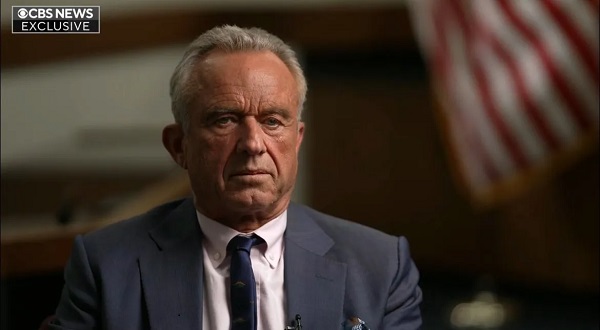Health
Opioid Treatments Expand Across Central Alberta

Officials with Alberta health Services have announced their opioid treatments are expanding across central Alberta. They have shared the following news release outlining those details.
Story by Shelley Rattray
Opioid dependency treatment has been expanded to nine communities throughout Central Alberta.
Alberta Health Services’ (AHS) Rural Opioid Dependency Program has improved access to opioid replacement therapy in Camrose, Drayton Valley, Olds, Ponoka, Rocky Mountain House, Stettler, Sylvan Lake, Wainwright and Wetaskiwin.
“Thanks to the use of video-conferencing technology we are able to provide Albertans with access to programming that normally wouldn’t be possible,” says Dr. Nathaniel Day, Medical Lead for the Rural Opioid Dependency Program.
“It can be difficult to access opioid replacement therapy outside of larger urban centres,” he adds, “however we are able to help eliminate barriers to care by providing video-conferencing sessions between physicians and patients in remote areas.”
The program began accepting patients in April and has the capacity to assist approximately 300 patients.
“Opioid dependency is a growing issue, and we are continuously is working to increase access and availability of substitution treatment,” says Dwight Hunks, Executive Director, Addiction and Mental Health, Central Zone. “This program will help Albertans receive the care they need in their own community. It will help save lives.
“One of the best approaches to treat fentanyl and other opioid addictions is substitution maintenance therapy in addition to counselling and other social support services,” adds Hunks. “This program will help Albertans receive the care they need, closer to home.”
The program was established following the Government of Alberta’s commitment to provide $3 million over three years to expand Opioid Dependency Treatment and increase access to treatment services and counselling across the province.
Since 2016, AHS has also opened a new clinic in Cardston in southwest Alberta, and a satellite clinic in Fort McMurray. More recently, an Opioid Dependency Program launched in Grande Prairie this spring.
Currently, there are now 16 clinics that treat opioid dependency across Alberta. Five of the 16 clinics are provincially funded and delivered by AHS and provide a full range of counselling and support services. A full listing of the clinics can be found on the College of Physicians and Surgeons website.
For more information about Opioid Dependency, please visit www.ahs.ca or call Health Link at 811.
Health
RFK Jr. Shuts Down Measles Scare in His First Network Interview as HHS Secretary

 The Vigilant Fox
The Vigilant Fox
CBS’s Jon LaPook tried to hype the measles panic, but Kennedy calmly dismantled the narrative and set the record straight.
The following is a streamlined and editorialized version of a thread that originally appeared on the American Values X page. It was edited and republished with permission. Click here to read the original thread.
HHS Secretary RFK Jr. recently set the record straight in an interview with CBS News’ chief medical correspondent, Dr. Jon LaPook. He pushed back on the claim that a second child had died from measles, exposing the narrative as not just misleading, but flat-out false.
But before that happened, Kennedy addressed the current measles outbreak and ongoing concerns about vaccine safety. He revealed that new safety trials are finally in motion.
“We don’t know the risks of many of these products,” he said. “They’re not adequately safety-tested.” He explained that “many of the vaccines are tested for only 3-4 days with NO placebo group.”
Kennedy made it clear this isn’t about banning vaccines—it’s about transparency. “I’ve always said … I’m not gonna take people’s vaccines away from them,” he said. “I’m gonna make sure that we have good science so that people can make an informed choice.” He added, “We are doing that science today.”
Kennedy was asked about Daisy Hildebrand, the young girl in Texas whose funeral he attended. Her death had been cited in headlines as proof of a growing measles crisis.
“It was very nice to be able to meet the parents in person and spend the whole day with them and share their lives with them and get to know their community,” he said. “The community was very welcoming and loving towards me.”
Kennedy described the experience warmly: “The Mennonite community was beautiful to me.” He added, “I went to a large lunch with the whole community and you had boys and girls sitting together and nobody was on a cell phone.”
That’s when Kennedy dropped the real bombshell: the child didn’t die from measles.
“The child whose funeral I attended this week was hospitalized three times from other illnesses,” he said. “She got measles and she got over the measles, according to her parents.” He added, “I saw the medical report on it today and the thing that killed her was not the measles, but it was a bacteriological infection.”
And it wasn’t the first time the media misled the public. Last month, another child’s death was falsely blamed on measles. But the truth is that it was a case of catastrophic medical error.
“Her death is the result of an egregious medical error,” CHD’s Mary Holland told Steve Bannon. “This girl wound up in the hospital because she did have some difficulty breathing, and instead of giving her breathing care, you’ll understand from the specialists with me that she got inaccurate, wrong-headed medical care, and that’s why she died.”
She added, “She did not die from measles. She died from a medical error, the third leading cause of death in this country.”
Thanks for reading. If you value the work being published here, upgrading your subscription is the most powerful way to support it. The more this Substack earns, the more we can expand the team, improve quality, and create the best reader experience possible.
For the full experience, upgrade your subscription.
Health
Red Deer Hospital Lottery – Previous Supporter Draw Deadline!

|
|
|
|
|
|
-

 2025 Federal Election1 day ago
2025 Federal Election1 day agoRCMP memo warns of Chinese interference on Canadian university campuses to affect election
-

 2025 Federal Election2 days ago
2025 Federal Election2 days agoFifty Shades of Mark Carney
-

 2025 Federal Election2 days ago
2025 Federal Election2 days agoCommunist China helped boost Mark Carney’s image on social media, election watchdog reports
-

 2025 Federal Election2 days ago
2025 Federal Election2 days agoConservative Party urges investigation into Carney plan to spend $1 billion on heat pumps
-

 MAiD2 days ago
MAiD2 days agoDisability rights panel calls out Canada, US states pushing euthanasia on sick patients
-

 Justice2 days ago
Justice2 days agoCanadian government sued for forcing women to share spaces with ‘transgender’ male prisoners
-

 Alberta2 days ago
Alberta2 days agoAlberta takes big step towards shorter wait times and higher quality health care
-

 2025 Federal Election16 hours ago
2025 Federal Election16 hours agoResearchers Link China’s Intelligence and Elite Influence Arms to B.C. Government, Liberal Party, and Trudeau-Appointed Senator


















